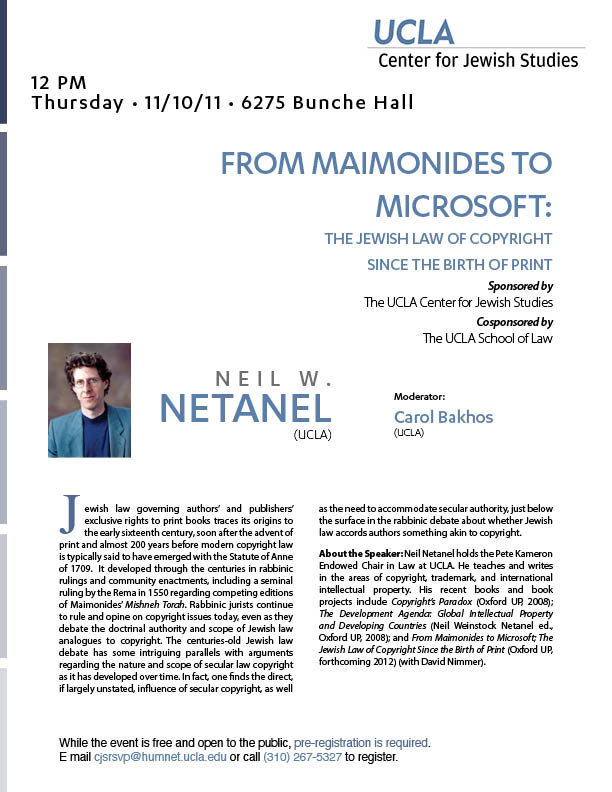
Jewish law governing authors’ and publishers’ exclusive rights to print books traces its origins to the early sixteenth century, soon after the advent of print and almost 200 years before modern copyright law is typically said to have emerged with the Statute of Anne of 1709. It developed through the centuries in rabbinic rulings and community enactments, including a seminal ruling by the Rema in 1550 regarding competing editions of Maimonides’ Mishneh Torah. Rabbinic jurists continue to rule and opine on copyright issues today, even as they debate the doctrinal authority and scope of Jewish law analogues to copyright. The centuries-old Jewish law debate has some intriguing parallels with arguments regarding the nature and scope of secular law copyright as it has developed over time. In fact, one finds the direct, if largely unstated, influence of secular copyright, as well as the need to accommodate secular authority, just below the surface in the rabbinic debate about whether Jewish law accords authors something akin to copyright.
About the Speaker: Neil Netanel holds the Pete Kameron Endowed Chair in Law at UCLA. He teaches and writes in the areas of copyright, trademark, and international intellectual property. His recent books and book projects include Copyright’s Paradox (Oxford UP, 2008); The Development Agenda: Global Intellectual Property and Developing Countries (Neil Weinstock Netanel ed., Oxford UP, 2008); and From Maimonides to Microsoft; The Jewish Law of Copyright Since the Birth of Print (Oxford UP, forthcoming 2012) (with David Nimmer).